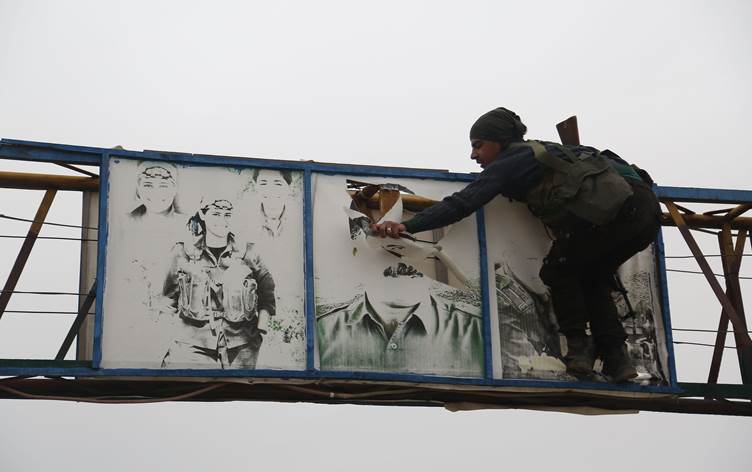ERBIL, Kurdistan Region – Turkish forces and their Syrian proxies have taken control of the dam that is the major water source for Afrin and claim to have reached the border of the city, state media reported.
Taking control of three villages on Friday morning, Turkish forces and allied Syrian militias have crossed the border of the largest urban centre in the Kurdish enclave, Anadolu Agency reported.
Separately, Anadolu reported Turkish forces are also in control of a portion of Maydanki dam, also called 17 Nisan, located 12 kilometres north of Afrin city. The YPG remain in control of villages to the west of the dam.
A day earlier, Turkish forces had reportedly cut off power at the dam that provides water for the majority of Afrin’s olive and fruit orchards, as well as drinking water and hydroelectricity.
Interruptions in the water and electricity supplies in the Kurdish canton have sparked concern of a rapidly deteriorating humanitarian situation, especially as the conflict escalates in the area of Afrin city.
UK-based conflict monitor Syrian Observatory for Human Rights has called on the United Nations to open a humanitarian corridor to allow the civilian population to flee.
The UN has previously estimated the population of Afrin to be around 323,000.
Many people have been displaced within the region in Syria’s northwestern corner. They have moved from the outer regions towards the centre, blaming Turkish bombardments and lack of basic necessities for pushing them out of their homes.
Media linked to the Kurdish YPG forces reported heavy clashes and Turkish airstrikes on multiple fronts on Friday morning, killing several civilians.
The Observatory reported 199 civilian deaths in Afrin as of Thursday.
Turkish officials have denied the deaths of civilians in its offensive that began on January 20.
Taking control of three villages on Friday morning, Turkish forces and allied Syrian militias have crossed the border of the largest urban centre in the Kurdish enclave, Anadolu Agency reported.
Separately, Anadolu reported Turkish forces are also in control of a portion of Maydanki dam, also called 17 Nisan, located 12 kilometres north of Afrin city. The YPG remain in control of villages to the west of the dam.
A day earlier, Turkish forces had reportedly cut off power at the dam that provides water for the majority of Afrin’s olive and fruit orchards, as well as drinking water and hydroelectricity.
Interruptions in the water and electricity supplies in the Kurdish canton have sparked concern of a rapidly deteriorating humanitarian situation, especially as the conflict escalates in the area of Afrin city.
UK-based conflict monitor Syrian Observatory for Human Rights has called on the United Nations to open a humanitarian corridor to allow the civilian population to flee.
The UN has previously estimated the population of Afrin to be around 323,000.
Many people have been displaced within the region in Syria’s northwestern corner. They have moved from the outer regions towards the centre, blaming Turkish bombardments and lack of basic necessities for pushing them out of their homes.
Media linked to the Kurdish YPG forces reported heavy clashes and Turkish airstrikes on multiple fronts on Friday morning, killing several civilians.
The Observatory reported 199 civilian deaths in Afrin as of Thursday.
Turkish officials have denied the deaths of civilians in its offensive that began on January 20.



Comments
Rudaw moderates all comments submitted on our website. We welcome comments which are relevant to the article and encourage further discussion about the issues that matter to you. We also welcome constructive criticism about Rudaw.
To be approved for publication, however, your comments must meet our community guidelines.
We will not tolerate the following: profanity, threats, personal attacks, vulgarity, abuse (such as sexism, racism, homophobia or xenophobia), or commercial or personal promotion.
Comments that do not meet our guidelines will be rejected. Comments are not edited – they are either approved or rejected.
Post a comment